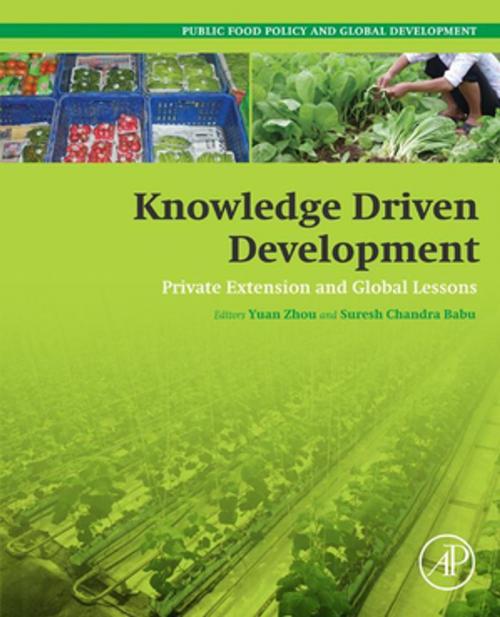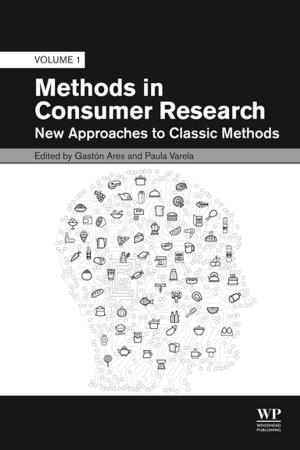Knowledge Driven Development
Private Extension and Global Lessons
Nonfiction, Science & Nature, Technology, Food Industry & Science, Business & Finance, Industries & Professions, Industries| Author: | ISBN: | 9780128023631 | |
| Publisher: | Elsevier Science | Publication: | May 30, 2015 |
| Imprint: | Academic Press | Language: | English |
| Author: | |
| ISBN: | 9780128023631 |
| Publisher: | Elsevier Science |
| Publication: | May 30, 2015 |
| Imprint: | Academic Press |
| Language: | English |
Knowledge Driven Development: Private Extension and Global Lessons uses actual cases written specifically to study the role and capacity of private companies in knowledge sharing and intensification through agricultural extension. Descriptions of specific models and approaches are teased out of complex situations exhibiting a range of agricultural, regulatory, socio-economic variables. Illustrative cases focus on a particular agricultural value chain and elaborate the special feature of the associated private extension system.
Chapters presenting individual cases of private extension also highlight specific areas of variations and significant deviance. Each chapter begins with a section describing the background and agricultural context of the case, followed by a description of the specific crop value chain. Based on understanding of this context, extension models and methods by private companies receive deeper analysis and definition in the next section. This leads to a discussion of the private extension with respect to its relevance, efficiency, effectiveness, equity, sustainability and impact. Following that, comparison with public extension, the uniqueness of the knowledge intensification model, and lessons for its replication and scaling up are elaborated. The final chapter summarizes the major results from the ten cases presented, looking at the trends, commonalities and differences of various extension approaches and the general lessons for success or failure. It concludes with a set of messages around value creation, integrated services, market links, inclusive innovation, and capacity development.
- Provides understanding of different knowledge sharing and intensification models of extension delivery and financing by private companies across the agricultural value chains
- Assesses the factors leading to successes or failures of various approaches
- Draws lessons and recommendations for future endeavors relating to private extension policies and programs
Knowledge Driven Development: Private Extension and Global Lessons uses actual cases written specifically to study the role and capacity of private companies in knowledge sharing and intensification through agricultural extension. Descriptions of specific models and approaches are teased out of complex situations exhibiting a range of agricultural, regulatory, socio-economic variables. Illustrative cases focus on a particular agricultural value chain and elaborate the special feature of the associated private extension system.
Chapters presenting individual cases of private extension also highlight specific areas of variations and significant deviance. Each chapter begins with a section describing the background and agricultural context of the case, followed by a description of the specific crop value chain. Based on understanding of this context, extension models and methods by private companies receive deeper analysis and definition in the next section. This leads to a discussion of the private extension with respect to its relevance, efficiency, effectiveness, equity, sustainability and impact. Following that, comparison with public extension, the uniqueness of the knowledge intensification model, and lessons for its replication and scaling up are elaborated. The final chapter summarizes the major results from the ten cases presented, looking at the trends, commonalities and differences of various extension approaches and the general lessons for success or failure. It concludes with a set of messages around value creation, integrated services, market links, inclusive innovation, and capacity development.
- Provides understanding of different knowledge sharing and intensification models of extension delivery and financing by private companies across the agricultural value chains
- Assesses the factors leading to successes or failures of various approaches
- Draws lessons and recommendations for future endeavors relating to private extension policies and programs















